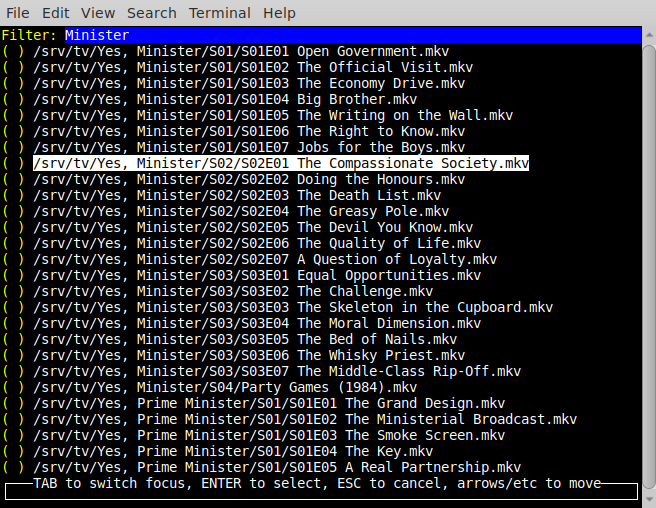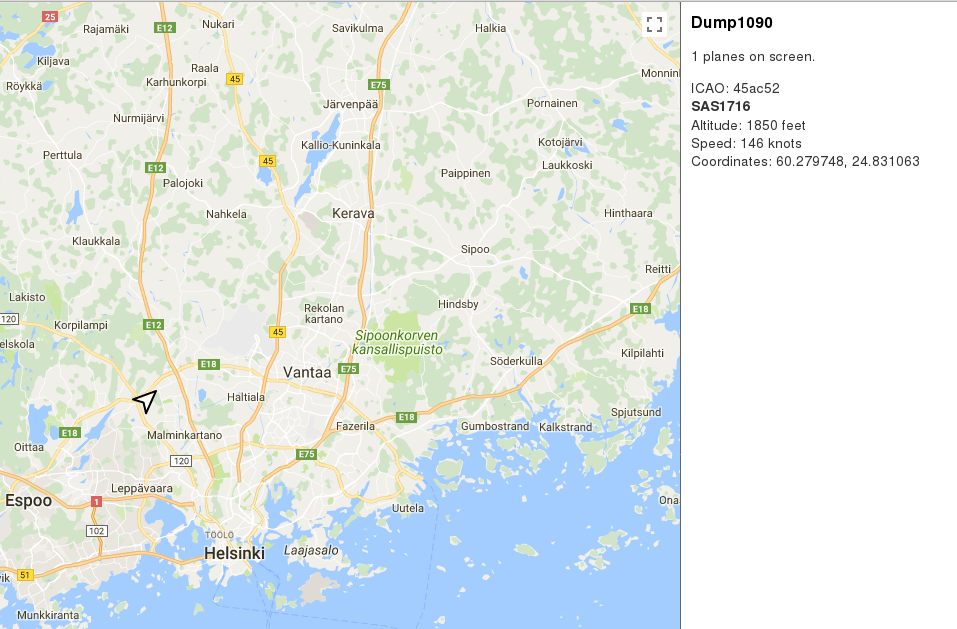
So last night I had the idea that it might be fun to write a
Brainfuck compiler, to convert BF programs into assembly language, where they'd run nice and quickly.
I figured I could allocate a day to do the work, and it would be a pleasant distraction on a Sunday afternoon. As it happened it only took me three hours from start to finish.
There are only a few instructions involved in brainfuck:
>
- increment the data pointer (to point to the next cell to the right).
<
- decrement the data pointer (to point to the next cell to the left).
+
- increment (increase by one) the byte at the data pointer.
-
- decrement (decrease by one) the byte at the data pointer.
.
- output the byte at the data pointer.
,
- accept one byte of input, storing its value in the byte at the data pointer.
[
- if the byte at the data pointer is zero, then instead of moving the instruction pointer forward to the next command, jump it forward to the command after the matching
] command.
]
- if the byte at the data pointer is nonzero, then instead of moving the instruction pointer forward to the next command, jump it back to the command after the matching
[ command.
The Wikipedia link early shows how you can convert cleanly to a C implementation, so my first version just did that:
- Read a BF program.
- Convert to a temporary C-source file.
- Compile with
gcc.
- End result you have an executable which you can run.
The second step was just as simple:
- Read a BF program.
- Convert to a temporary assembly language file.
- Compile with
nasm, link with ld.
- End result you have an executable which you can run.
The following program produces the string "Hello World!" to the console:
++++++++[>++++[>++>+++>+++>+<<<<-]>+>+>->>+[<]<-]>>.>---.+++++++..+++.>>.<-.<.+++.------.--------.>>+.>++.
My C-compiler converted that to the program:
extern int putchar(int);
extern char getchar();
char array[30000];
int idx = 0;
int main (int arc, char *argv[])
array[idx]++;
array[idx]++;
array[idx]++;
array[idx]++;
array[idx]++;
array[idx]++;
array[idx]++;
array[idx]++;
while (array[idx])
idx++;
array[idx]++;
array[idx]++;
array[idx]++;
array[idx]++;
while (array[idx])
idx++;
array[idx]++;
array[idx]++;
idx++;
array[idx]++;
array[idx]++;
array[idx]++;
..
..
The assembly language version is even longer:
global _start
section .text
_start:
mov r8, stack
add byte [r8], 8
label_loop_8:
cmp byte [r8], 0
je close_loop_8
add r8, 1
add byte [r8], 4
label_loop_14:
cmp byte [r8], 0
je close_loop_14
add r8, 1
add byte [r8], 2
add r8, 1
add byte [r8], 3
add r8, 1
add byte [r8], 3
add r8, 1
add byte [r8], 1
sub r8, 4
sub byte [r8], 1
jmp label_loop_14
close_loop_14:
add r8, 1
add byte [r8], 1
..
mov rax, 60
mov rdi, 0
syscall
section .bss
stack: resb 300000
Annoyingly the assembly language version ran slower than the C-version, which I was sneakily compiling with "
gcc -O3 .." to ensure it was optimized.
The first thing that I did was to convert it to fold adjacent instructions. Instead of generating separate increment instructions for "
>>>" I instead started to generate "
add xx, 3". That didn't help as much as I'd hoped, but it was still a big win.
After that I made a minor tweak to the way that loops are handled to compare at the end of the loop as well as the start, and that shaved off a fraction of a second.
As things stand I think I'm "done". It might be nice to convert the generated assembly language to something
gcc can handle, to drop the dependency on
nasm, but I don't feel a pressing need for that yet.
Was a fun learning experience, and I think I'll come back to optimization later.
 In the past, I've talked about building a Z80-based computer. I made some progress towards that goal, in the sense that I took the initial (trivial steps) towards making something:
In the past, I've talked about building a Z80-based computer. I made some progress towards that goal, in the sense that I took the initial (trivial steps) towards making something:
 You'll see:
You'll see:
 NOTE: In this view I'm in Helsinki, and the airport is at Vantaa, just outside the city.
Of course there are tweaks to be made:
NOTE: In this view I'm in Helsinki, and the airport is at Vantaa, just outside the city.
Of course there are tweaks to be made: